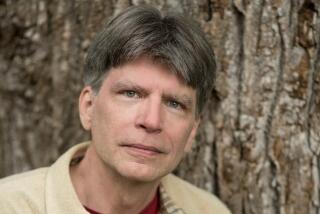Readers React: The ‘opportunity gap’: We’re living in Huxley’s ‘Brave New World’
To the editor: Insightful writers like Doyle McManus have documented the ever-widening economic inequality that seems to threaten our societal foundations. But we were warned. (“How ‘social air bags’ for rich kids exacerbate unequal opportunity,” op-ed, March 17)
In 1931, Aldous Huxley wrote “Brave New World,” a novel that looked ahead six centuries to find upward mobility absent, with societal roles determined at birth. Huxley foresaw a society, set in London, headed by an upper crust of Alphas and Betas, with heightened intelligence enhanced from conception.
The vast majority of the citizenry was made up of three lower castes: Deltas, Epsilons and Gammas; they were programmed to perform and to accept their lot as menial workers.
Huxley’s warnings were largely ignored during the heady economic expansions of 20th century population booms. But with economic prospects muted by slowed population increases and dwindling natural resources, a new world looms ever closer, distasteful as it seems.
The question now may not be so much how to narrow the opportunity gap as how to adjust to it. Lowered expectations are never an easy sell.
Kendra Strozyk, Cameron Park
..
To the editor: In his column on inequality of opportunity, McManus misses an important point on the disadvantages that poor children face: parent education.
An infant who is not talked to a lot or read to is already behind in her intellectual development. This information can be imparted to parents as part of prenatal care.
A good preschool initiative such as the Head Start program can continue reinforcing parental skills. It may not entirely solve all the problems of youngsters living in poverty, but it is a beginning.
Sandra Canalis, Santa Monica
The writer taught nursing of children at Northwestern University.
Follow the Opinion section on Twitter @latimesopinion and Facebook
More to Read
A cure for the common opinion
Get thought-provoking perspectives with our weekly newsletter.
You may occasionally receive promotional content from the Los Angeles Times.










